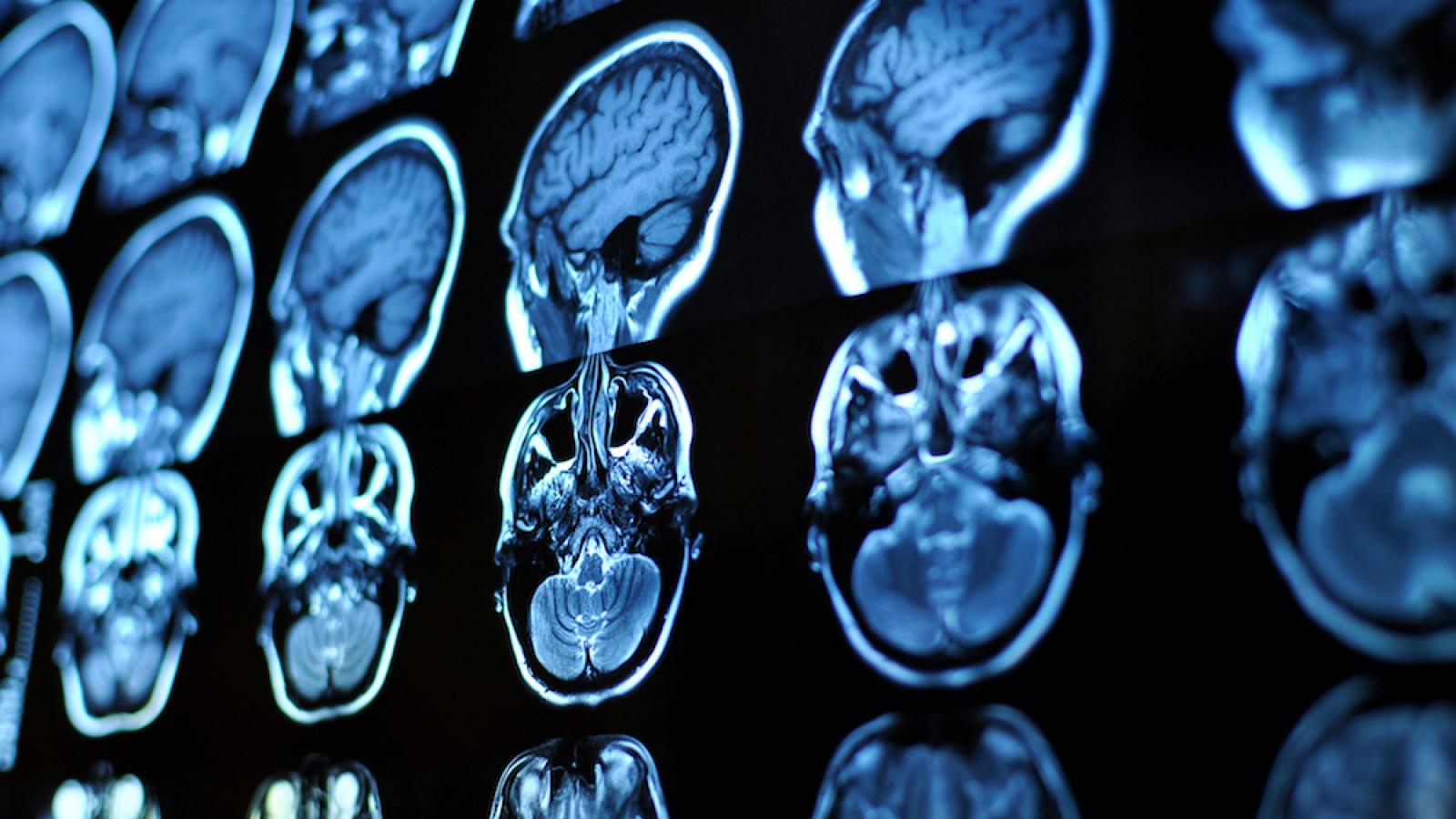A new study involving UK DRI researchers has found that exposure to the Covid-19 virus can cause shrinkage and structural changes in areas of the brain that are known to be involved in smell. The results suggest Covid-19 infection may be associated with neurodegeneration, although further research is needed to determine whether this is reversible.
The major new study, published this week in Nature, is the first to compare brain scans taken before and after participants had been infected with Covid-19. It was led by the Wellcome Centre for Integrative Neuroimaging at the University of Oxford, in collaboration with researchers Prof Paul Matthews and Dr Eugene Duff from the UK DRI at Imperial.
participants received MRI scans
"The Covid pandemic has provided a unique natural experiment to help us understand whether there is a relationship between inflammation and dementia, and how important that is."Prof Paul MatthewsCentre Director
Scientists studied 785 people who had received MRI brain scans before and during the Covid-19 pandemic as part of the UK Biobank study. 401 participants had tested positive for Covid-19 between the two scans, with the second scan taking place four and a half months after infection, on average. Most participants had mild symptoms or were asymptomatic.
Compared with 384 uninfected control subjects, those who tested positive for Covid-19 had greater overall brain shrinkage and more grey matter shrinkage, particularly in areas linked to smell. For example, those who had Covid-19 lost an additional 1.8% of the parahippocampal gyrus, a key region for smell, and an additional 0.8% of the cerebellum, compared with control subjects.
People who had been infected with the virus also scored lower on a cognitive test, suggesting that there may be behavioural consequences of the brain changes associated with exposure to the virus.
Prof Gwenaëlle Douaud from the University of Oxford, and lead author on the study, said:
“Using the UK Biobank resource, we were in a unique position to look at changes that took place in the brain following mild—as opposed to more moderate or severe—SARS-CoV-2 infection. Despite the infection being mild for 96% of our participants, we saw a greater loss of grey matter volume, and greater tissue damage in the infected participants, on average 4.5 months after infection. They also showed greater decline in their mental abilities to perform complex tasks, and this mental worsening was partly related to these brain abnormalities. All these negative effects were more marked at older ages. A key question for future brain imaging studies is to see if this brain tissue damage resolves over the longer term.”
Prof Paul Matthews, Centre Director at UK DRI at Imperial, and co-author on the study, said:
“The Covid-19 virus may not enter the brain in every person it infects. However, it does cause inflammation in the body, particularly in the airways and in some cases, also in cells that are responsible for smell.
This inflammation outside the brain could trigger inflammation in cells within the brain which could impair brain function or directly lead to neurodegeneration. We know that inflammation in the body is linked to an increased risk of neurodegeneration and dementia, but direct evidence has been limited because exposures to infectious agents are so common and varied.
The Covid pandemic has provided a unique natural experiment to help us understand whether there is a relationship between inflammation and dementia, and how important that is. While the results reported here are observational, they provide some of the most direct evidence currently available for a relationship between viral inflammation in the body and neurodegeneration.”
Reference: Douaud, G., Lee, S., Alfaro-Almagro, F. et al. SARS-CoV-2 is associated with changes in brain structure in UK Biobank. Nature (2022). https://doi.org/10.1038/s41586-022-04569-5
Article published: 11 March 2022
Banner image credit: Shutterstock/Alina Bratosin
additional shrinkage in the parahippocampal gyrus in those who had the virus
